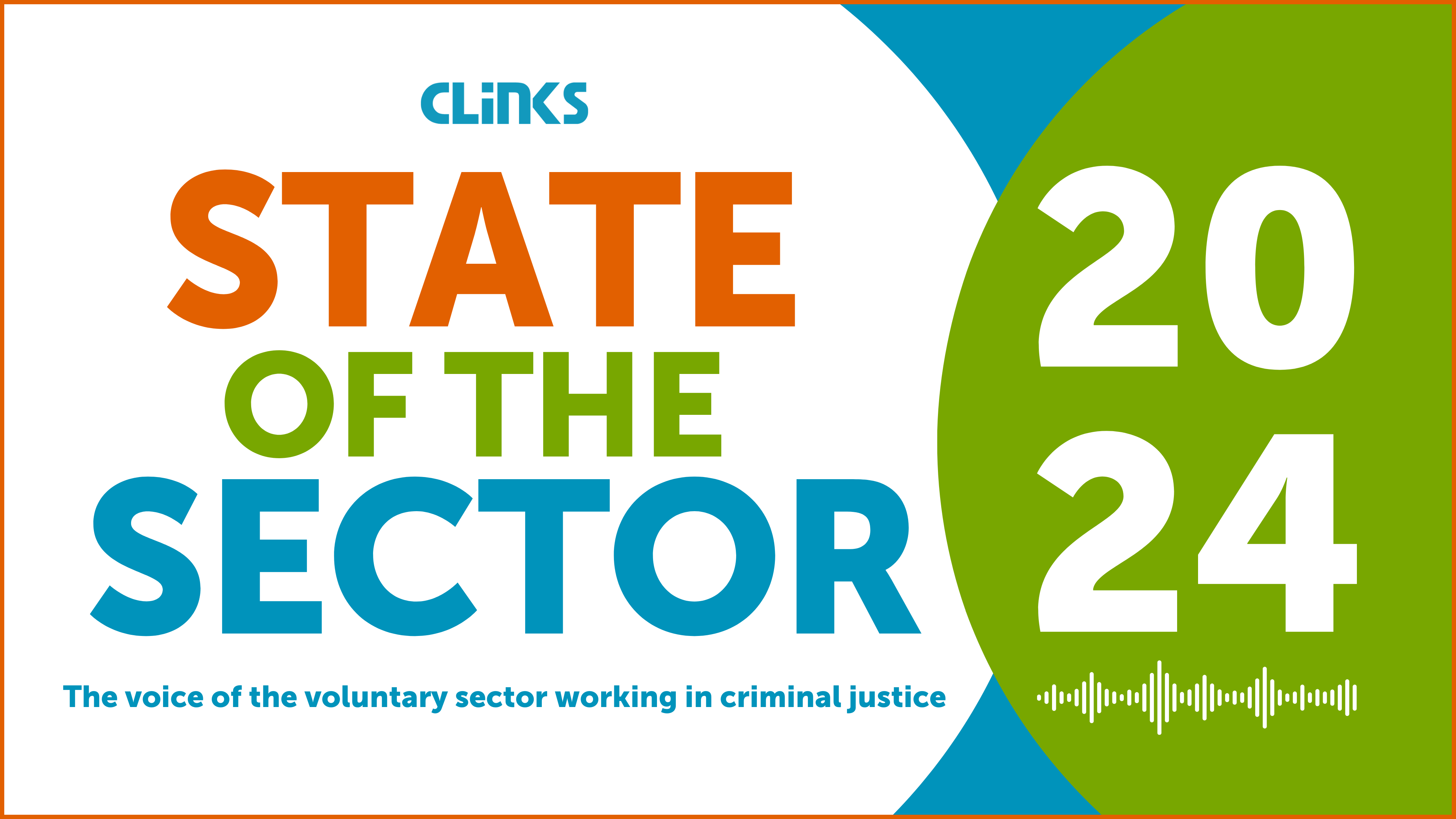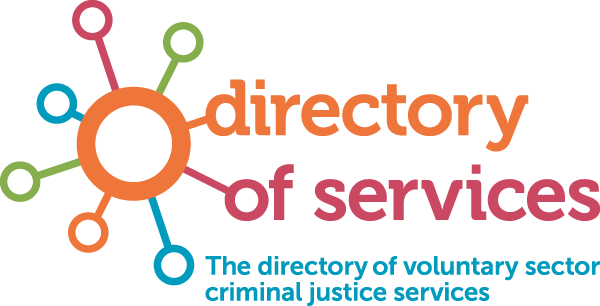
For over a decade, Clinks has surveyed the voluntary sector working with people in contact with the criminal justice system, capturing a snapshot of the landscape and the conditions in which these organisations operate. This year, in response to consistent feedback, we took a different approach. Rather than conducting our usual survey, we set out to gain deeper insight into the persistent challenges organisations have raised year after year.
To do this, we partnered with the National Council for Voluntary Organisations (NCVO) to facilitate a series of focus groups and interviews with voluntary organisations and funders across the sector, creating space for candid conversations about their experiences. This report draws on both these findings and our extensive, ongoing engagement with voluntary organisations across England and Wales. This is the seventh consecutive year we’ve worked with NCVO and we are particularly grateful to Harriet Pearce Willis, Alex Ruhland-Syquia, and Sarah Menzies for their insights and support this year as we have looked to better understand and represent the problems the sector is facing.
- Concerns about how criminal justice issues are presented in the media.
- The value of coalitions and alliances, and how these might be expanded.
- How the reverberations of the pandemic are continuing to affect the sector.
- Staffing challenges, including recruitment and retention, supporting the mental health of frontline staff.
- Vetting and challenges around lived experience engagement.
- How funders and others can support the sector over the coming year.
How Others Can Support Organisations
Placing Trust in the Voluntary Sector
Many participants felt the statutory sector should place more trust in the voluntary sector, treating voluntary organisations as ‘equal’ or ‘meaningful’ partners. This could include, more dialogue with the voluntary sector, timely involvement in policy consultation or service design, and statutory organisations being more open to the often-innovative ways of working displayed in the voluntary sector.
"MoJ and HMPPS just has to see the voluntary sector and the huge amount of services that they deliver as equal partners. … it does always feel like you're slightly held outside of that conversation until certain decisions have been made and then you might be welcomed in to have your say on something. But the deal has effectively been done."
"I think there's something there…about prisons, particularly, wanting to engage with voluntary sector partners but not really trusting them. So they're like ‘we want to bring you in, we want you to do this’. But then you're like, ‘well, that involves people with lived experience or different ways of working or different models’ and they're like, ‘oh, no, we can't do any of that’. … If you really want to work with charities and unlock the things you talk about around innovation and different ways of working, you have to trust them to do that. And I'm not saying just give them a blank slate, but you have to recognise what they're trying to do."
One organisation argued that, while short-term government rescue packages for the voluntary sector were helpful, it was important to think ‘strategically and long term’ about how best to support the sector.
A few organisations mentioned their positive experiences of working in meaningful partnerships with statutory organisations. Another saw an opportunity for this to happen through place-based working.
Implementing Action
Two organisations expressed frustration at reports or campaigns that do not lead to action. Two other organisations noted that government prison education initiatives had not led to as much change in prisons as they had hoped.
What the Future Holds and What Needs to Happen
Organisations expressed a wide range of feelings about the future, from cautious optimism to deep concern. Some feel fortunate to have secured funding for the next few years or have identified new opportunities for growth and expansion. Others are choosing to focus on stability, ensuring their existing models remain sustainable rather than taking on additional risk. Many hope that the change in government, as well as discussions around women’s services, sentencing, and anti-racism, will lead to meaningful policy improvements.
However, a number of organisations remain pessimistic, concerned about an increasingly difficult funding environment. One spoke about the very real possibility that they may not survive the next year, and others said that they or others in the sector were facing precarious situations. Uncertainty dominates the sector, with leaders struggling to plan beyond the immediate future.
"I honestly couldn't tell you what the next 12 months are going to look like. I couldn't tell you what the next five years are going to look like. In a way that I think is quite unusual for us. I think that we've really felt that uncertainty, but we have been through so much in the last five years that I think there's a great kind of will to continue and to keep going."
Despite these challenges, organisations continue to demonstrate resilience and innovation. They remain committed to their work, advocating for longer-term funding models, a stronger partnership with statutory bodies, and an approach to service delivery that prioritises user needs over financial constraints. If these structural changes can be achieved, the voluntary sector will be able to continue playing its crucial role in supporting people in contact with the criminal justice system and helping them rebuild their lives.
To achieve this, we have developed a set of recommendations for statutory and philanthropic funders. These recommendations outline how we can ensure the sector is able to deliver high-quality, innovative services driven by the needs of the people they support.
1. The Government should work with the voluntary sector to develop a national framework of service delivery and evaluation
- Develop a consistent approach to service evaluation across the voluntary sector in criminal justice.
- Support organisations in measuring their impact effectively, allowing them to demonstrate success and secure ongoing funding.
2. Statutory and charitable funders should consider how to support long-term funding opportunities
- Funders should prioritise multi-year funding to improve service continuity and reduce financial insecurity.
- Longer-term funding enables organisations to retain skilled staff, prevent funding cliff-edges, and provide service users with certainty about ongoing support.
3. Statutory and charitable funders should create opportunities for unrestricted and core funding
- Funders should offer unrestricted funding where possible, allowing organisations to allocate resources based on service user needs rather than rigid funding criteria.
- Where full unrestricted funding is not possible, funders should ensure a proportion of project funding can contribute to covering core operational costs.
4. Statutory and charitable funders should work with the voluntary sector to strengthen partnership working and embed co-commissioning
- Encourage models that involve voluntary sector organisations as equal partners in the design and delivery of services, rather than as subcontractors to statutory agencies.
- Foster cross-sector partnerships between voluntary organisations, local authorities, and statutory agencies to reduce duplication, and ensure service users receive holistic, well-coordinated support.
5. Statutory and charitable funders should provide meaningful feedback for unsuccessful funding applications
- As competition for funding increases, funders should provide constructive feedback to unsuccessful applicants.
- This would help organisations improve future applications and access alternative funding opportunities.
6. Statutory and charitable funders should ensure their funding processes are culturally competent funding processes
- Funders should ensure that funding assessments are culturally competent and that assessors understand the unique value of organisations led by and for racially minoritised communities.
- This would help reduce barriers for organisations that provide essential, specialist support to groups facing structural disadvantage.








